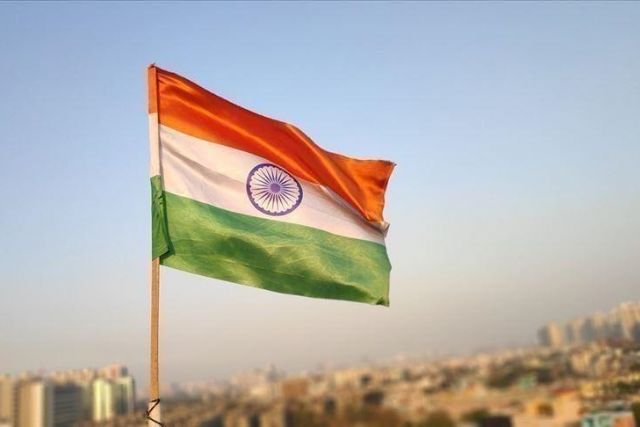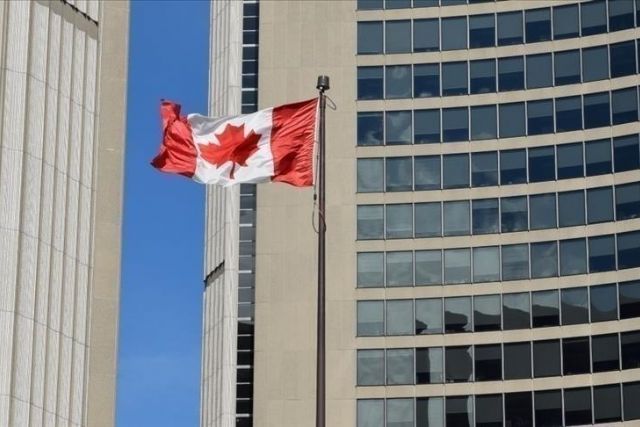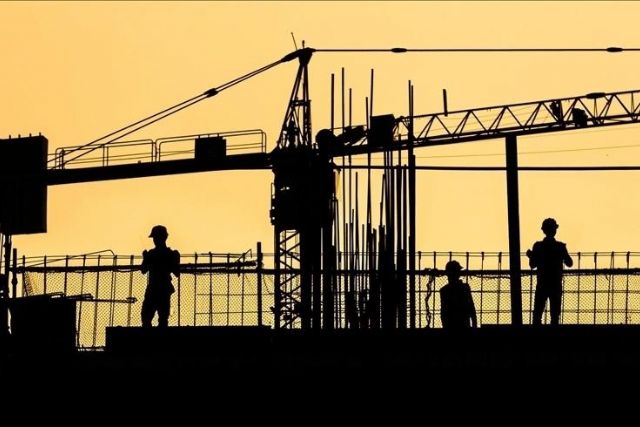High-stakes contest in provincial polls in India’s Punjab
Anadolu Agency finds that drug menace, decrease in Sikh population due to largescale migration, farmers issues are high on minds of voters

SAMRALA/PATIALA, India
Although five Indian provinces are currently in the middle of choosing a provincial government, the stakes are high in the northern states of Uttar Pradesh and Sikh-dominated Punjab, which borders India's arch-rival Pakistan.
Since the farmers in the state of Punjab were at the forefront in the year-long agitation against three farm laws that they felt were favoring corporate, the elections for 117 assembly seats scheduled on Feb. 20 have taken an interesting turn.
Even as the government repealed these laws to lure farmers into voting for the ruling Bharatiya Janata Party (BJP) and its local allies, a visit to the ground suggests that the issue was still high in the minds of rural voters, who are mostly Sikhs.
While the political parties are busy luring the voters, what is bringing a worry to the many in the villages, is decreasing the Sikh population in the state due to migration. A large number of people, mostly students, have gone to countries like Canada for jobs.
Speaking to Anadolu Agency, political analyst Jagroop Kaur said if the migration continues, it will create a big impact on the electoral mathematics of the state in the coming years.
In Punjab, the Sikh population fell to 57.7 % in 2011 as compared to 59.9 % in 2001, while that of Hindus has grown to 38.5 % from 36.9 %.
"More and more people send children abroad. Now, if it continues, the demography of the electorate will change and there are high chances that the only Sikh majority state may become a minority," she said.
A section of farmers has also decided to jump into the electoral fray for the first time under a new political party Samyukt Samaj Morcha (SSM).
The main office of the SSM in the main market of Punjab's Samrala city, 280 kilometers (173 miles) from New Delhi, is decorated with party banners and flags. A group of party workers is seen busy coordinating meetings for their leader Balbir Singh Rajewal, a known face during the farmer's agitation last year.
Receiving good response
Rajewal is contesting from Samrala. Speaking to Anadolu Agency, his aide Rachpal Singh said that they are receiving a good response from the public.
"Traditional political parties have failed to bring relief to the general public in the state. We will work for the welfare of everyone with a focus on farmers, laborers, unemployment," he said, adding that migration of youth from the state to abroad is another major issue which they would try to put an end to.
However, not all people are happy with the farmer's decision to join politics.
On the outskirts of Samrala village in Dyalpora village, the entrance is decorated with flags of different parties.
Had all the farmers decided to contest elections unitedly, many villagers say, things could have been different.
Harjinder Singh, a local, told Anadolu Agency that over the years, the previous ruling parties had not addressed the core problems faced by the public.
"There are no jobs in the state. Now students are not staying here and going abroad. Initially, students would go after graduating, now they are leaving after finishing their schooling," he said, adding that in the village, the contest is between the Shiromani Akali Dal, a Sikh-centric political party in India, the farmer's party, and the Aam Aadmi Party (AAP).
Another issue is the sacrilege incidents in Punjab. Several incidents of desecration of Sikh temples, which is an emotive issue among the Sikh community, have been reported in the state recently.
"We want a government which will stop end to these issues," said Singh.
AAP spreading wings
The AAP is ruling the provincial government in the national capital New Delhi and has been hailed for its work in the field of education and health.
The AAP, which has spread its wings to other states as well, is using its track record in the national capital to woo voters during the campaigning in the state.
In the 2017 election, when the state went to the polls, it won 20 seats and turned out to be the leading party in the opposition.
Manpreet Kaur, sister of the AAP leader and chief ministerial candidate Bhagwant Mann, said that the people of the state are fed up with dynastic politics.
"Wherever we go, we seek votes with the promises to get red Punjab from corruption and give an accountable government to the people," she said.
In many villages, the issues raised by the party are showing an impact.
"In 2017, they didn't get an opportunity to power and they couldn't do anything. We want an education and health system like Delhi here," Sukhbir Singh, a 42-year farmer in Kakarwal village in Sangrur district of Punjab, told Anadolu Agency.
Jagroop said multiple factors will decide this election.
"There are multiple factors this time, which I am seeing for the first time. Aam Aadmi Party has emerged in the scene at a high level, farmers are contesting, then you have Akalis contesting alone for the first time," she said, adding that chances of a single party scoring majority look very slim at the moment.
In Patiala city, the issue of youth falling into the menace of drugs is also in the minds of people. On Sunday, Indian Home Minister Amit Shah, a senior BJP leader, had also mentioned the drug problem in the state in his speech.
Drug issue
The Bharatiya Janata Party and its old ally Shiromani Akali Dal are contesting elections separately for the first time in decades after they developed cracks in relationships over farm bills.
"When the Congress party came to power, before elections, they announced an end to the drug problem in the state. After five years, what has changed? Youth in the state is suffering, but no political party is doing anything," says Kulwant Singh in the main town of Patiala.
While pointing to an Aam Aadmi Party poster on an electricity pole, he said that this time people are planning to give a chance to a new party.
On the ground, many people feel that the BJP is raking emotive religious issues in the elections. During its speeches, the party has talked about issues like religious conversions and the role of Congress in the 1984 anti-Sikh riots (triggered by the assassination of former Prime Minister Indira Gandhi on Oct. 31, 1984, by her Sikh bodyguards.)
In the last elections, the BJP, which was in an alliance with Shiromani Akali Dal, had contested 23 seats. Now the party is contesting 73 seats, banking on the Hindu urban vote.
"We won't give votes to a party, which will divide the people in the state," said Amreek Singh, a resident of Ludhiana city. "Religion is no issue for us here. We want a government that will give jobs, good hospitals, and good educational institutions," he said.
Dalit factor
Singh said his son is studying in a college in Chandigarh, the capital of Punjab.
"Had it been good educational institutions here, why would I send him to Chandigarh," he asked.
What has added a shot in the arm for the ruling Congress party is the announcement of a Dalit as its chief ministerial candidate. Dalit is a term used for those who were formerly known as "untouchables." Dalits are at the bottom of India's hierarchical caste system and are still subjected to untouchability in many parts of India.
With 32 % of its population Dalits, Punjab has the highest schedule caste population than any other state in India. The state never had any Dalit chief minister.
There are some signs that the Dalit vote may favor the Congress party, at least in some areas of the state.
"It is for the first time that chief minister candidate of Congress is a Dalit. So for Dalits, it is a big thing. In some areas, it may help the party," said Mohit Khanna, a journalist based in Ludhiana city.





